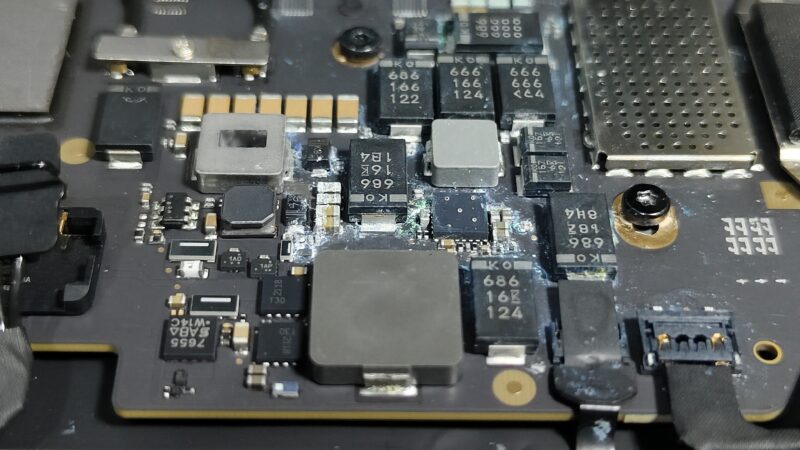Religiosity and science are, in the Western views, contradictory. We can see see this from the many occurrences where the Church teaches one thing and science proves another, which in the Medieval era led to the inquisition of this scientist. The theory of evolution also started an important stage in the conflict between religion and science. The theory that human came into being through a long process of evolution is against what religion teaches, that is, human was created by God from dust. Many other areas of conflict between religion and science are apparent these days as well, including the creation of the universe which, according to religion (particularly the self-proclaimed “Creationist”), took place in six days and, according to the most acceptable theory in science, took place billions of years starting with a big bang. In the face of this conflict, it has become acceptable that religion is for the simple-minded group that believes in superstitions and myths.
This conflict, however, does not really exist in the same intensity in the history of Islam and the cultures of Muslims. The medieval history is peppered with prominent Muslim scientists whose work eventually found their ways to Europe and paved the way to the Renaissance. For Muslims, some of whom believing that the Quran is on a certain level should be read figuratively, religion does not set the limit to one’s knowledge of the world. There is also a famous prophetic Tradition in which the Prophet Mohammad says “Seek knowledge, even if you have to go to China (which was then the farthest known land from the Arabia).” Muslim scientists, during the early centuries of Islam, sought knowledge unbound by any notion of limit to human knowledge. Medicine, astronomy, and maths were among the most popular sciences for the Medieval Muslims. To this day, in Muslim societies, many scientists are devout practicing Muslims. The Muslims accept God’s existence, God’s role in the creation of the universe, and the contents of the Quran as a reality that is unchallenged in the face of new scientific findings.
This phenomenon, hard to grasp as it is in the Western context, is portrayed in the TV Series Bones, although with a different emphasis, in the person of Arastoo Vasiri. When Arastoo Vasiri (Pej Vahdat) appears for the first time in the TV series, he is pictured praying in the laboratory, thus presented as a devout Muslim. As he speaks (“Salt in the Wounds” episode), we find that he has an accent, that we can safely assume to be the accent of someone from the Middle East. Later in the TV series, after his colleagues find out that he actually doesn’t have an accent has grown up in the United States, his colleagues engage him in a conversation about the unusual combination of his profession and passion as a scientist and his devout religiosity. The unusual absence (or at least little known) conflict between Islam and science that I set out above manifests in his friends questions:
HODGINS: How do you balance an archaic religious belief with a life devoted to science?
ARASTOO: This discussion is exactly what I hoped to avoid.
CAM: It’s not our fault you let the accent slip.
ARASTOO: There’s no conflict between Allah and science. Allah created the mystery of the world, and science struggles, and mostly fails, to explain it. But the search for truth is honorable, and I honor Allah through the search for truth.
HODGINS: I get that. But what’s with the “Kill the infidel” routine?
ARASTOO: It’s times like this I wish I drank alcohol.
ANGELA: Well, “Fight and slay the unbeliever.”
ARASTOO: I prefer the other option, which is to enslave the unbeliever. (CAM and ANGELA look shocked). It’s a joke.
CAM: Ha.
HODGINS: That was funny.
It appears here that what is more interesting to explore for the TV series (or its creator) is what such conflict (or the absence thereof) between religion and science does to American Muslims. To avoid being a target of scrutiny for being an “odd American scientist,” Arastoo decided to use an accent. Considering his facial features (as an Iranian), the accent makes him easily pass for a new immigrant. And as a new immigrant, he reserves the right to be seen as a person who “clings to his cultural superstitions.” This is revealed in the conversation between Arastoo and Sweets the psychologist:
SWEETS: Yeah, the whole accent thing – it’s kind of out in the world.
ARASTOO: (Reverts to American accent). I figured.
SWEETS: This place, the Jeffersonian – they see things in very black-and-white terms.
ARASTOO: Comes with the gig. We’re scientists.
SWEETS: Yeah, but unlike any of them, you’re religious.
ARASTOO: Muslim.
SWEETS: Now, this man I see in front of me right now – rational, pragmatic, highly intelligent. That man might have to explain his religion to people like that every single day. Whereas…
ARASTOO: Whereas a kid from the sticks of Iran, newly arrived in the West, it’s no wonder he clings to his cultural superstitions.
SWEETS: There you go. Frustrating enough to drive a guy to fake an accent. Which, in my professional opinion, is not crazy.
ARASTOO: You’re a pretty smart guy.
SWEETS: But I don’t need a scientist to tell me who or what I am. And neither should you, Mr. Vaziri. Thanks for coming by.
ARASTOO: Thank you. (They stand and shake hands).
From this, we can see that the Muslims, at least one in this TV Series, are aware of the apparent difference in the way religious people across religions see the relationship between religion and science.


